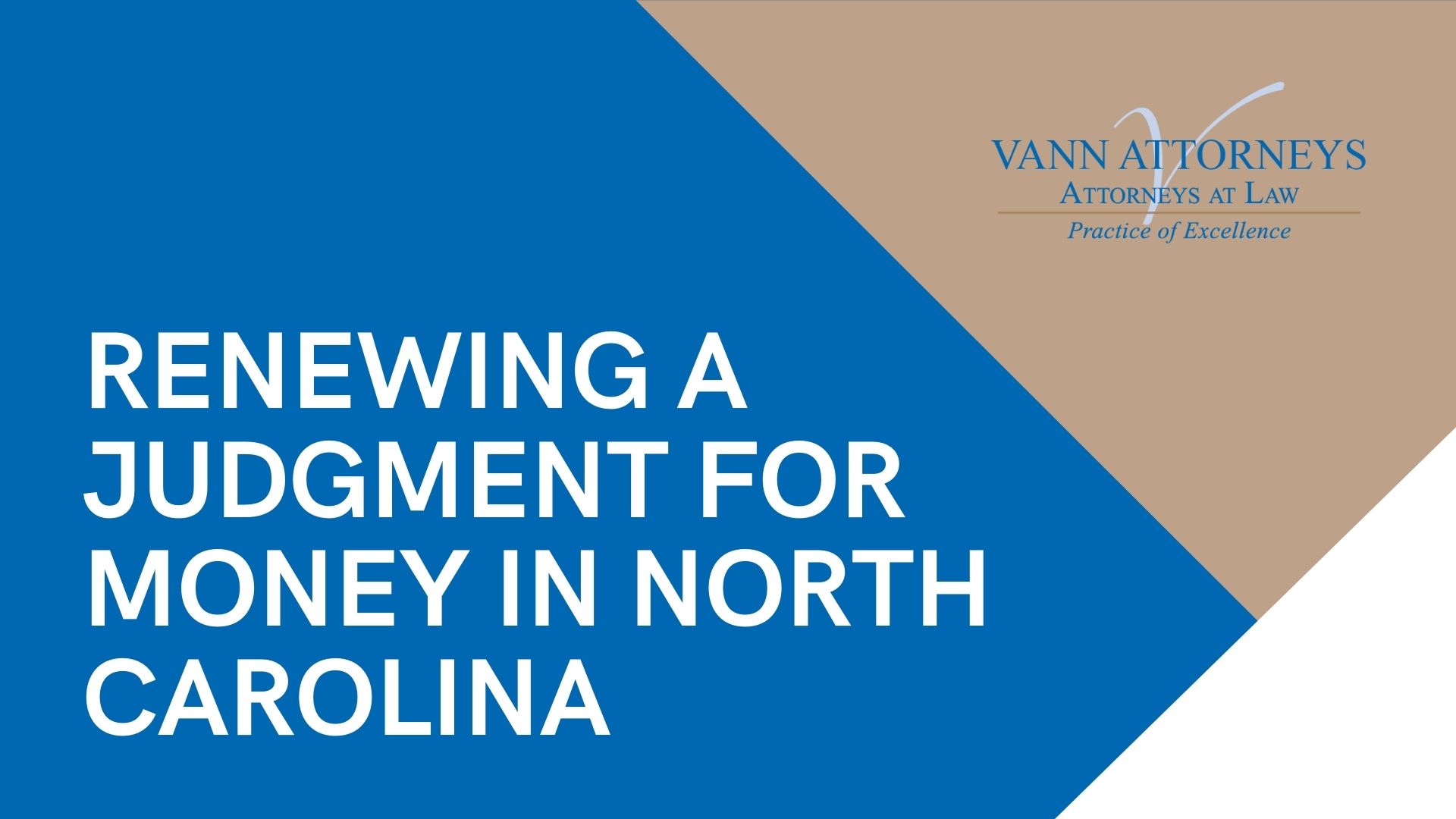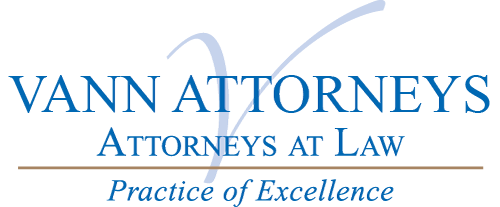Renewing a Judgment for Money in North Carolina
By James R. Vann
Attorney at Law

Suppose your business was awarded a substantial money judgment eight years ago and it has never been collected or only a portion was collected. You know that your judgment is valid for ten years from the date it was awarded by the Court, and you do not want it to expire without being paid. Besides, being an experienced business person, you realize that although execution and other post-judgment collection efforts can take awhile, if a judgment debtor needs to refinance existing real estate, buy a new house, or trade in an old car, you just may have some leverage. What should you do?
Many creditors have probably heard that judgments may be renewed in North Carolina. The benefit of renewing a judgment is that it extends the validity of the judgment for another ten years. The procedure by which the creditor of a judgment may renew the judgment is to file a completely new and independent action and have the debtor served with the summons and complaint. Additionally, you must file the action within ten years of the date your original judgment was rendered. Typically, this procedure is not as difficult as it may sound; once the debtor is served, few reasons exist as to why the judgment should not be renewed.
There is another reason why it is important to know that judgments are not simply renewed in North Carolina: the lien created by the original judgment is not continued. In other words, the new judgment does not become a lien until it is docketed in the county where the debtor owns real estate. If there is any gap period between the expiration of the original judgment and the docketing of the new judgment, and the debtor happens to sell his real property during that time, your opportunity to have the judgment satisfied out of the sale is lost. As unlikely as this situation may seem, it has occurred.
In evaluating whether to sue on a former judgment, a creditor should consider how judgments operate, as well as the likely effectiveness of collection efforts after the new judgment is obtained. Judgments operate as a lien upon all the debtor’s real property then owned or later acquired once the judgment is docketed. If a judgment is obtained in one county and the debtor owns real property in another, a transcript of judgment should be sent to the latter county so the judgment lien attaches. The judgment and the lien are valid for ten years following the rendition of the judgment. After a judgment becomes a lien upon the debtor’s real property, any subsequent change in ownership is subject to the lien. If your lien became effective before other encumbrances, you have a higher possibility of being paid from the proceeds of a sale.
Additionally, unsatisfied judgments reflect poorly on credit reports, and most reputable lenders will not grant credit when an unsatisfied judgment exists. Since we are largely a credit-driven society, many debtors become anxious about their credit histories. A debtor may, after all, wish to buy a house or car sometime in the future, and twenty years is a long time to
wait. In this respect then, you may have a higher likelihood of being paid if the debtor’s credit history is at least salvageable.
Familiarity with post-judgment collection procedures is also important in evaluating whether to sue on a former judgment. Individual debtors have the right to claim a certain amount of real and personal property exempt from execution by the sheriff. Executions and proceedings supplemental to executions are oftentimes time-consuming but eventually may be highly effective tools for collecting a judgment.
Once you make the decision to obtain a new judgment, however, it is at least encouraging to know that in most cases the procedure is a relatively simple matter. As long as the former judgment was rendered by a court with jurisdiction over the parties and the subject matter, a new judgment should be granted.
Wisdom, Experience, Results
Learn More from Vann Attorneys
Vann Attorneys stands ready to meet the diverse needs of clients ranging from individuals to privately held family businesses to corporations with national distribution. The firm represents clients throughout North Carolina and the United States. We periodically publish content that is relavant to our clients and community. Keep reading our 'News & Events' page on the topics most important to you and your business.
Proven
Experience on
Your Side
Leave a message
Raleigh Office
RALEIGH HOURS
| Mon | 8am - 5pm |
|---|---|
| Tues | 8am - 5pm |
| Wed | 8am - 5pm |
| Thurs | 8am - 5pm |
| Fri | 8am - 5pm |
Charlotte Office
CHARLOTTE HOURS
| Mon | 8am - 5pm |
|---|---|
| Tues | 8am - 5pm |
| Wed | 8am - 5pm |
| Thurs | 8am - 5pm |
| Fri | 8am - 5pm |



